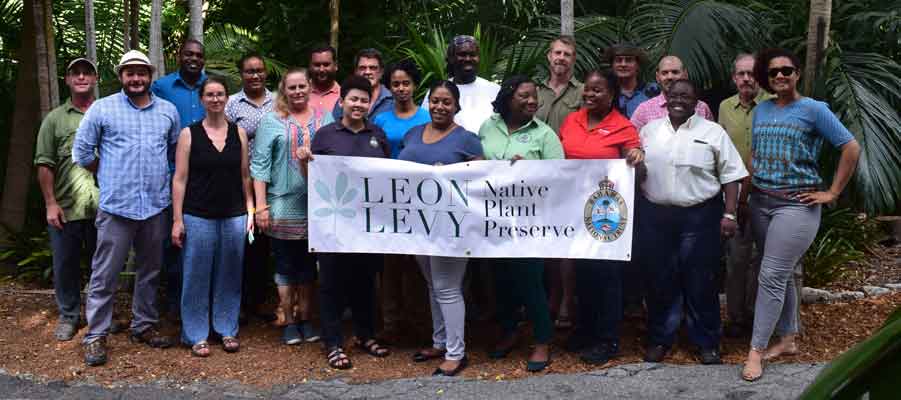Fourteen Bahamian and eight Caribbean experts converged in Nassau for a week of training on how to assess threatened and endangered species, known as the International Union for the Conservation of Nature (IUCN) Red List training.
The workshop focused on how Red Listing is done, the components of an assessment and then went through the process of Red Listing Bahamian species.
 The training took place the week of November 12th at the BNT’s Retreat Garden and included Bahamians from governmental and non-governmental organizations including staff from BNT, Island Conservation, the Forestry Unit, the Department of Marine Resources and the Bahamas Environment Science and Technology Commission took part in the workshop. Also attending were botanists from Cuba, Jamaica, Dominican Republic, Haiti, Barbados and Florida. The group came with data and were able to obtain several species assessed during the week.
The training took place the week of November 12th at the BNT’s Retreat Garden and included Bahamians from governmental and non-governmental organizations including staff from BNT, Island Conservation, the Forestry Unit, the Department of Marine Resources and the Bahamas Environment Science and Technology Commission took part in the workshop. Also attending were botanists from Cuba, Jamaica, Dominican Republic, Haiti, Barbados and Florida. The group came with data and were able to obtain several species assessed during the week.
The IUCN Red List of Threatened Species is the world’s leading authority on the conservation status of all species and is an important tool in assessing a country’s biodiversity status and conservation priorities. The Bahamas sits on the edge of the what is known as the Caribbean Biodiversity Hotspot, named for the high concentration of different species many of which are found nowhere else in the world; also referred to as endemic. Many of these unique species are not listed on the Red List at all; whether threatened or not. This can be problematic for acquiring funding for projects and research for these species as much funding is aimed at species listed as Threatened or even Data Deficient by the IUCN. Many species found in The Bahamas that have no assessment mostly include plants, many invertebrates like butterflies and snails, many reptiles (which is improving), freshwater fishes and even the iconic Queen Conch.
The BNT and the LLNPP acknowledged a serious deficiency on the Bahamian plants that were globally listed as Threatened or Endangered and made it a priority for the next five years to get most species assessed under the Red List. This will put The Bahamas on track for meeting international obligations under the Convention on Biological Diversity (CBD) and the Sustainability Development Goals (SDG).
This training was sponsored and supported by the Leon Levy Native Plant Preserve (LLNPP) and the Bahamas National Trust (BNT) in conjunction with Botanical Gardens Conservation International (BGCI) and the Missouri Botanical Garden.